Filter by

Dynamics of Climate Change and Water Resources of Northwestern Himalaya
This book is about the Himalayan ranges as a source of fresh water supply and a perennial store house of ice, snow and permafrost as well as a vast repository of rich biodiversity, in the light of climate change. Special attention is given to the dynamics of snow and glaciers in the northwestern Himalayas, assessment of climate change patterns, and the consequences of changes and flow regime in…
- Edition
- -
- ISBN/ISSN
- 9783319137438
- Collation
- xii, 204 pages
- Series Title
- -
- Call Number
- 338.91
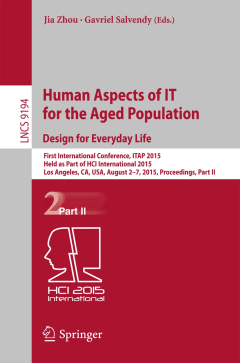
Human Aspects of IT for the Aged Population. Design for Aging
The two LNCS volume set 9193-9194 constitutes the refereed proceedings of the First International Conference on Human Aspects of IT for the Aged Population, ITAP 2015, held as part of the 17th International Conference on Human-Computer Interaction, HCII 2015, held in Los Angeles, CA, USA, in August 2015, jointly with 15 other thematically conferences. The total of 1462 papers and 246 posters pr…
- Edition
- -
- ISBN/ISSN
- 978-3-319-20891-6
- Collation
- XXIII, 540
- Series Title
- -
- Call Number
- 004 HUM
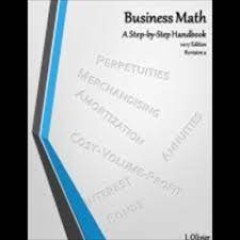
Business Math
Business math is the study of mathematics required by the field of business. By the fact that you are reading this textbook, you must be interested in a business field such as accounting, marketing, human resources, or economics. Regardless of your path, you cannot avoid dealing with money and numbers. Both personally and in your career you certainly use elementary arithmetic such as addition, …
- Edition
- -
- ISBN/ISSN
- -
- Collation
- -
- Series Title
- -
- Call Number
- 330 OLI b
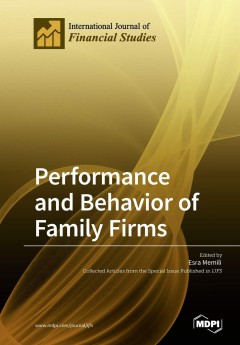
Performance and Behavior of Family Firms
Family involvement characterizes a large number of firms around the world and is thought to significantly impact their strategies, behavior, and performance. Family involvement occurs when a family exerts control over the firm through ownership and management. When family involvement leads to intentions to pursue particularistic goals and strategies, controlling families are more likely to exer…
- Edition
- -
- ISBN/ISSN
- 978-3-03842-782-7
- Collation
- -
- Series Title
- -
- Call Number
- 650 PER f
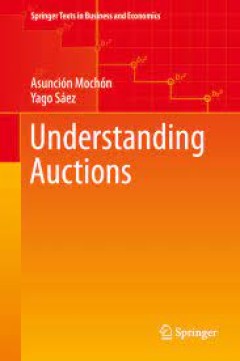
Understanding Auctions
In recent years, auctions have become an important field and many markets have designed new and sophisticated auction models to assign different types of items. The prime goal of this book is to set an organized classification of the main auction mechanisms in a way that readers can understand the importance of auction design and the advantages and drawbacks of each model. Given the relevance o…
- Edition
- -
- ISBN/ISSN
- 978-3-319-08813-6
- Collation
- 18 illustrations in colour
- Series Title
- -
- Call Number
- -

Dynamics of disasters : key concepts, models, algorithms, and insights ; Kala…
This volume results from the "Second International Conference on Dynamics of Disasters" held in Kalamata, Greece, June 29-July 2, 2015. The conference covered particular topics involved in natural and man-made disasters such as war, chemical spills, and wildfires. Papers in this volume examine the finer points of disasters through: · Critical infrastructure protection · Resiliency · Humanita…
- Edition
- -
- ISBN/ISSN
- 9783319437095
- Collation
- -
- Series Title
- -
- Call Number
- 338.7

Dynamics of Distribution and Diffusion of New Technology A Contribution to th…
This book presents a comprehensive study of adoption and diffusion of technology in developing countries in a historical perspective. Combining the development of growth trajectories of the Indian economy in general and its manufacturing industry in particular, the book highlights the effective marriage between qualitative and quantitative methods for a better understanding and explaining of ma…
- Edition
- -
- ISBN/ISSN
- 9783319327440
- Collation
- -
- Series Title
- -
- Call Number
- 338.7
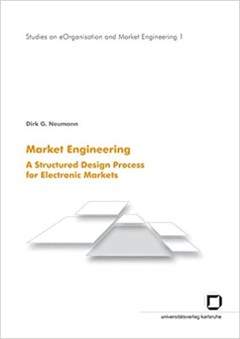
Market engineering : A structured design process for electronic markets
In this book, the author provides a complete process for electronic markets design together with the required en-gineering methods. As such the book is unique applying tech-niques from engineering design to modern Information Systems and Economics. Mr. Neumann succeeds in presenting a generic but coherent approach that is an indispensable aid in designing markets.
- Edition
- -
- ISBN/ISSN
- -
- Collation
- -
- Series Title
- -
- Call Number
- 621 NEU m
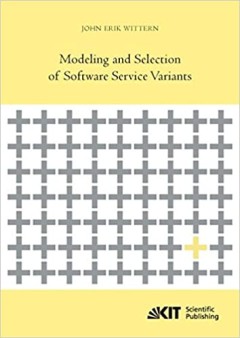
Modeling and Selection of Software Service Variants
Providers and consumers have to deal with variants of software services, which are alternative instances of a services design, implementation, deployment, or operation. This work develops the service feature modeling language to represent software service variants and a suite of methods to select variants for development or delivery. An evaluation describes the systems implemented to make use o…
- Edition
- -
- ISBN/ISSN
- 978-3-7315-0349-1
- Collation
- -
- Series Title
- -
- Call Number
- 005 WIT m
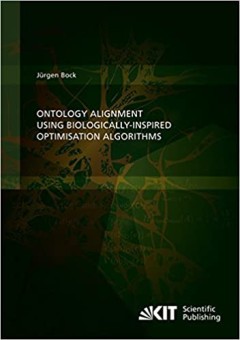
Ontology Alignment using Biologically-inspired Optimisation Algorithms
It is investigated how biologically-inspired optimisation methods can be used to compute alignments between ontologies. Independent of particular similarity metrics, the developed techniques demonstrate anytime behaviour and high scalability. Due to the inherent parallelisability of these population-based algorithms it is possible to exploit dynamically scalable cloud infrastructures - a step t…
- Edition
- -
- ISBN/ISSN
- 978-3-86644-936-7
- Collation
- -
- Series Title
- -
- Call Number
- 510 BOC o
 Computer Science, Information & General Works
Computer Science, Information & General Works  Philosophy & Psychology
Philosophy & Psychology  Religion
Religion  Social Sciences
Social Sciences  Language
Language  Pure Science
Pure Science  Applied Sciences
Applied Sciences  Art & Recreation
Art & Recreation  Literature
Literature  History & Geography
History & Geography